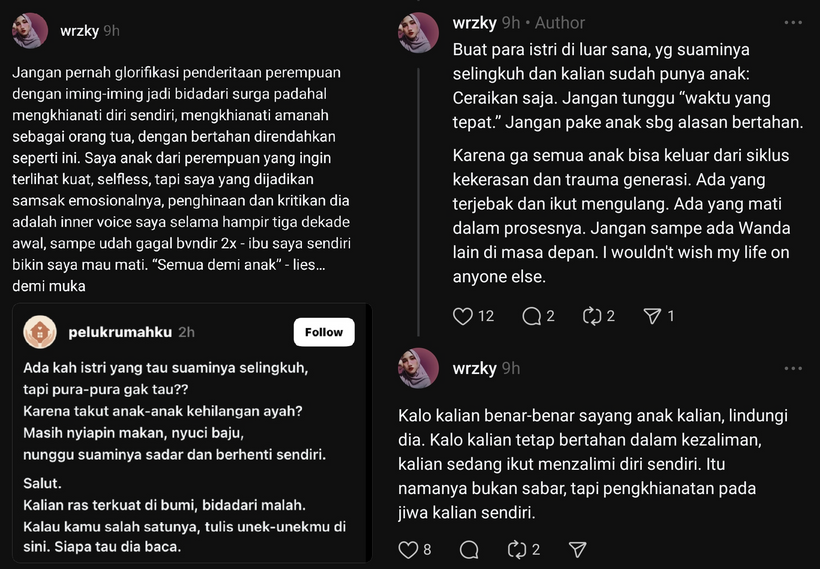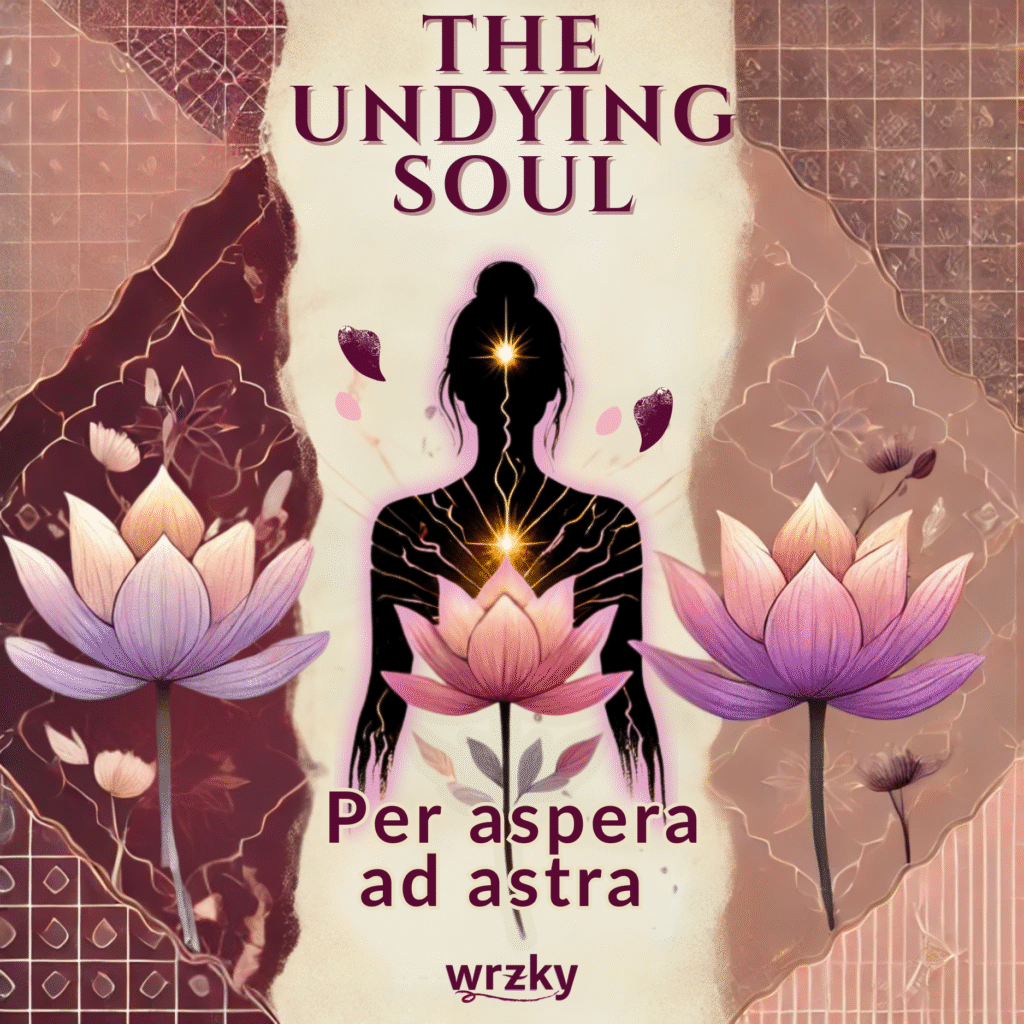Eternal Purgatory of the Hyperverbal Mind: Autism, Hypergraphia, and the Weight of Words.
I have just realised the full extent of how my autistic mind experiences life—how I regulate emotions, process thoughts, and navigate existence through words. And I have also just realised that I have been spilling poetic agony across the internet without even recognising the full depth of it at the time—just deprecatingly calling it “being emo.”
But the thing is, I often word things in a way that obscures their real meaning. A subconscious filter, a way of keeping a barrier between myself and the world. Readers either put in the effort to understand or remain in the dark. Because when you turn grief into immaculate prose and trauma into aesthetically devastating poetry, it becomes easier for people to admire it without realising it is a cry for help.
Writing is not just something I do. It is how I process reality. If I do not externalise my thoughts, they spiral into an endless loop of rumination. Writing is not simply a tool for expression—it is survival. It is how I contain myself so I do not break apart.
Hyperverbalism, Trauma, and the Weight of Words
I do not write just because I enjoy it. I need to write. Instead of stimming physically, writing is my preferred stim. It is how I regulate my emotions, how I make sense of grief, and how I release what threatens to consume me.
This is more than a habit—it is hypergraphia, the compulsive need to write, to translate my thoughts into structured language so they do not consume me first. I externalise pain into words so it does not stay trapped. I could bawl my eyes out just from writing it down. It is cathartic. It is the only way I know how to process trauma, to make the unbearable into something tangible.
But writing is not just emotional regulation—it is how I structure my thoughts, how I remember, how I catalogue my understanding of the world. My brain offloads information through written language because it is the only way I can make things real.
My hyperverbalism manifests in deep, structured writing rather than constant speech. My mind is always constructing sentences, analysing and articulating emotions through language, documenting thoughts to solidify them. I do not just feel—I deconstruct, analyse, and translate my feelings into structured knowledge. That is how I make sense of my own existence.
The Language That Holds Me Together
My relationship with language is deeper than fluency; it is about how language structures my perception of reality. English became my safe language, free from the trauma attached to my first language. It provides distance. It provides control.
I have extremely nuanced self-expression; switching languages lets me access different emotional states. English allows me to deconstruct and articulate thoughts with surgical precision. Indonesian, however, feels too raw, too personal, too close to my wounds.
I cannot simply experience things without internalising and deconstructing them. I do not just read or watch something—I absorb, analyse, and integrate it into my worldview. I do not just listen to you—I catalogue your tone, your expression, the way you inhale before you speak, how the words sound when they leave your mouth. I feel every word, record it in my memory, turn it into something tangible.
Ever since I was diagnosed, I have wondered how far I would have gone if I had not spent the first three decades believing the world I saw through my mother’s eyes.
To live is to experience the world among people. But for people like me, to simply exist is the absolute mercy of all. Perhaps that is why my sense of morality, faith, and ethics is so deliberate and structured—because I have actively built them, piece by piece, from the knowledge I have consumed and the connections I have been consumed by.
The Burden of Knowing Too Much
I am so self-aware that I often feel like I exist outside myself, observing my own existence. My hyperanalysis of everything—the way I process emotions, memories, and experiences through language. I am always narrating, always analysing, always documenting.
And that kind of awareness is isolating. People say knowledge is power, but it’s also a weight to bear.
Hypergraphia only deepens that burden. When your mind is an overactive archive of everything you have seen, thought, and felt, there is no escaping yourself. I do not just experience emotions—I dissect, translate, and immortalise them in writing, whether I want to or not.
I have often been told that I sound both logical and emotional at the same time—like I am dissecting my own feelings while still drowning in them. My psychiatrist once told me that she wonders whether my relationship with faith contributes to this layered self-awareness, or if it is the other way around. Does my frame of thinking allow me to deconstruct the relationship between human and a Higher Power?
I told her: both.
Because I’m a human in every sense of being; in its fragility, in its power, in its potential—just as He intended. I am capable of destruction, which is both good and bad. I know how to create, build, start, and stop something. I am aware of my limitations and doubts.
It’s as if something deep inside my psyche is a controller named Morality; all this defiance, yet my devotion belongs to the ideals of right human conduct—not as an arbiter of justice, but in humility. Perhaps, it is a subconscious effort to preserve what’s left of the purity of my own soul, in reverence of a Higher Power.
And there is a reason why people turn away from truth, why ignorance is bliss. To see reality too clearly, to recognise patterns too easily, to articulate emotions so precisely—it is both a gift and a curse. There is no comfort in seeing things exactly as they are, in realising how little people live up to the ideals they claim to hold.
Maybe that is why witches were hunted down in the stories of old—not because they wielded real magic, but because they saw too much, knew too much, and dared to demand more. Because men felt inadequate in their presence, emasculated by smart-mouthed women who challenged them to step up and do better.
“How dare you expect us to be something we are not?”
And I?
I am not a woman of the craft, nor am I part of a coven. But I, too, am a keeper of ancient horrors in a blackened, seared heart. I bear the untold tales of the mangled remnants of what were once vivacious maidens in the wilderness. I understand them. And I, too, pray for the downfall of mankind and for their world to burn.
Because to exist in this world as someone who sees clearly is to live in perpetual disillusionment.
It is to realise—again and again—that expectations are the enemy of happiness.
That nobody is worthy of the heartache that follows the perpetual disappointments the world never fails to deliver.
Because to exist in this world as someone who sees clearly is to be weighed down by self-blame and regret. Because imagine being understood by me—only for you to merely perceive.
And there is no justice for those who see too clearly. They are shunned, burned, forgotten. Or worse—turned into something palatable, repackaged into poetry for admiration instead of recognition.
Ignorance is bliss. And my heart goes out to those who have been devoured by their own hope and dreams.
The Weight of My Words
This self-alienation may have been unintentional or a by-product of complicated grief.
But writing this in response to my own realisation is an act of taking care of myself as I grieve. Expressing my feelings, my thoughts, in a tangible way. All in an effort to understand myself better. To understand my brain better. To figure out how to express it in a way that is easier for others to grasp.
After all, writing in isolation was where I built my self-esteem and self-worth brick by brick.
Maybe I write for fellow autistics who cannot help but ruminate, whether they have been diagnosed, self-diagnosed, or still unaware. Maybe I write so they can recognise themselves in my words, understand their own minds better.
Or maybe… this is just another effort to invite people to understand me. To improve emotional intelligence, social awareness.
Or maybe, I am just beyond tired of spoonfeeding people on how to treat me correctly in the way that I deserve.
For Someone Who Writes About Everything…
For someone who has written about suicidal thoughts, depression, abuse, mother wounds, and philosophical manifesto on storytelling, I have come to realise something:
I do not believe there is any merit in deliberately enduring an unfulfilling relationship. I do not believe suffering through emotional neglect makes a person stronger. There is no virtue in depriving yourself of the same understanding and presence that you so freely offer others.
Because in the end, the only certainty is your own descent into the abyss and the uncertainty of what could have been.
And what is more tragic than realising that you, the writer, have written yourself into a story that was never meant to hold you?
I have written everything—philosophy, grief, poetry, death, love.
But I refuse to write myself into a love that will never write me back.
——
18/09/2025 – A/N: First published on Medium. I wrote this to process a heavy realisation about my own relationship with my then-fiancé, I was basically preparing myself mentally to break off our engagement at this point. Looking back, I think it’s safe to say that if I begin to wax poetic about grief or equally morbid, heavy subjects on Threads, please check on me, because it means I’m deeply unwell lmao



